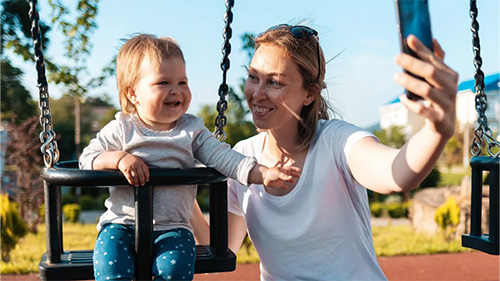Why Privacy Matters More Than Ever?

Today, the lines between personal and public life are increasingly blurred. A growing trend called "sharenting"—parents sharing photos, videos, and updates about their children on social media—has sparked significant concern among experts, parents, and even children. While often motivated by love and pride, sharenting can also have unintended consequences that impact children's privacy, safety, and mental health.
Sharenting refers to parents posting content about their children online, ranging from adorable baby photos to detailed updates about their daily lives. It's a way for parents to connect with family and friends, seek approval, and document their children's milestones. However, this practice raises important questions about consent, privacy, and the long-term impact on children.
The Risks of Oversharing
1. Privacy Invasion
Children cannot consent to having their images and personal information shared online. Once published, these digital footprints exist permanently and can be accessed by anyone, including potential predators. For example, sharing a photo of a child in front of school could inadvertently reveal their location, making them vulnerable to unwanted attention.
2. Mental Health Impacts
The digital world is unforgiving, and children may face bullying or embarrassment due to the content their parents share. This can lead to anxiety, depression, and a distorted sense of self-worth. Furthermore, children may feel a loss of control over their image, leading to trust issues with their parents.
3. Exploit Risk
In some cases, children's images have been used without their permission to train AI models or for other inappropriate purposes. This practice has raised concerns about the ethical use of children's images and their potential misuse.
Aware of these risks, many parents are re-evaluating their online sharing habits. Some are limiting their children's exposure on social media, opting to use private accounts, or even refraining from posting altogether. This shift reflects a growing awareness of the importance of protecting children's digital identities and respecting their privacy. To responsibly navigate the complexities of sharing, parents can consider the following guidelines:
Limit personal information: Avoid sharing sensitive information that could jeopardize your child's safety, such as their school name, location, or health information.
Use privacy settings: Make sure your social media accounts are set to private and be aware of who can view your posts.
Think before you post: Consider the potential long-term impact of sharing a photo or activity. Ask yourself if your child would accept such behavior as an adult.
Educate your children: Teach your children about online privacy and the importance of controlling their digital footprint.
While sharing is often done with good intentions, it's crucial to recognize the potential risks. Parents who prioritize privacy and make informed decisions about what to share online can protect their children's well-being and help them navigate the digital world safely. In an age where digital footprints are ever-present, respecting children's privacy is not only a parent's responsibility but also a fundamental right.
Recommended for you



